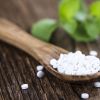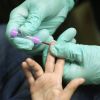-
 +18 +4
+18 +4When Trauma Isn’t Worth the Post-Traumatic Growth
On May 24th, 2022, 19 children and 2 teachers lost their lives in a school shooting in Uvalde, Texas. Parents waited in anguish at a local civic center to learn if their child had survived. The agonizing screams of family members could be heard from the parking lot outside. This marks the 27th school shooting so far this year in the United States. Just 10 days before the Texas shooting, 10 Black people has been killed in a racist rampage in a Buffalo, New York supermarket.
-
 +19 +4
+19 +4Food insecurity rises as families lose child tax credit payments, data shows
Food insufficiency among U.S. families with children increased by 12 percent in February after child tax credit payments under a federal Covid-19 relief plan expired, according to new data from Children’s HealthWatch, a nonpartisan group of health care workers and researchers. Food insufficiency had fallen by 26 percent last year, when more than 36 million families received the payments, which stopped in December after Congress defeated Build Back Better legislation that would have made them permanent.
-
 +16 +7
+16 +7Positive parenting can reduce the risk that children develop obesity
New research from Penn State found that children with positive, early interactions with their care givers — characterized by warmth, responsiveness, and a stimulating home environment — were at reduced risk of childhood obesity.
-
 +9 +1
+9 +1How to talk to children about the invasion of Ukraine, and why those conversations are important
The early months of 2022 have already included several distressing world events. From the ongoing COVID-19 pandemic, to protests against vaccine mandates and COVID-19 restrictions, to the Russian invasion of Ukraine — there has been a lot to weigh on the hearts and minds of individuals and families around the world.
-
 +3 +1
+3 +1Cash Aid to Poor Mothers Increases Brain Activity in Babies, Study Finds
The research could have policy implications as President Biden pushes to revive his proposal to expand the child tax credit.
-
 +8 +1
+8 +1Brain imaging study finds parental criticism disrupts children's adaptive responses to rewards and losses
According to a neuroimaging study published in the Journal of Experimental Child Psychology, children whose mothers are more critical toward them show reduced brain activity in response to monetary rewards and losses. The findings suggest that criticism from parents may impair the way children respond to environmental cues.
-
 +21 +4
+21 +4Consuming sweeteners during pregnancy may affect baby’s microbiome and obesity risk
Consuming sweeteners during pregnancy may affect baby’s microbiome and obesity risk, finds new study in Frontiers in Nutrition
-
 +16 +2
+16 +2The Long-Haul Breastfeeders of COVID
Desperate for a little extra pandemic protection, some women are nursing their kids much later than they ever imagined they would.
-
 +16 +3
+16 +3Sugar not so nice for your child’s brain development
Sugar practically screams from the shelves of your grocery store, especially those products marketed to kids. Children are the highest consumers of added sugar, even as high-sugar diets have been linked to health effects like obesity and heart disease and even impaired memory function.
-
 +22 +5
+22 +5Do Video Games Damage Your Mental Health? Research Reveals Complicated Truth
Fears about what video games are doing to young minds have been growing for years — not least because now 97% of teenagers play them. They’re said to reduce socialising with real friends, damage psychological adjustment and the violence depicted in many games may be corrupting.
-
 +23 +6
+23 +6What Children Lose When Their Brains Develop Too Fast
Adverse early experiences can make young minds inflexible, while a carefree childhood has clear cognitive benefits.
-
 +7 +1
+7 +1Chaotic households undermine children’s development of executive functioning through less responsive parenting
Children living in chaotic households demonstrate worse executive functioning, according to a study published in BMC Psychology. The findings revealed that this effect was partly driven by lower parental responsiveness in chaotic households.
-
 +17 +4
+17 +4Most mums admit favouring sons, say researchers
Mothers are more critical of their daughters than their sons, and admit to having a having stronger bond with their little boys, according to research. While they praise particular characteristics in their sons – seeing them as being "funny", "cheeky" and "playful" – mothers admit that they are likely to denigrate their daughters for showing similar attributes, referring to them instead as "stroppy", or "argumentative".
-
 +4 +1
+4 +1What If We Taught Students That Religion is Absurd?
We need to educate our children and teenagers to the point where they can think critically for themselves and can easily see and understand the absurdity of religion
-
 +21 +3
+21 +3I Write a Parenting Advice Column (or How I Became Famous in My Neighborhood)
None of my neighbors subscribe to my Substack newsletter, as far as I can tell. That’s fine with me. I don’t talk much about my vocation around here. We’ve lived in this house for many years (although we will be moving in a few days), and during that whole period I’ve never spoken to anyone on our street about my writing. From their perspective, I’m just another family man who works from home.
-
 +2 +1
+2 +1Should I have children? Weighing parenthood amid the climate crisis
One evening last summer, I was running through a damp field on my farm in Vermont with my 10-year-old and a passel of dogs. We were barefoot and laughing. Suddenly, my daughter turned to me with a serious look in her eyes. “I didn’t realize things were going to get so bad so soon,” she said. “What things?” I asked. Was she thinking about the heatwave in Vermont, forest fires in California or the pandemic?
-
 +16 +3
+16 +3Black, But Not White, Families Talked More About Race After The Murder of George Floyd
Conversations about race can be seriously beneficial to children. Research has highlighted multiple positive outcomes for young people of all backgrounds — enhanced ability to accept different viewpoints and perspectives, increased levels of empathy, a better understanding of their own identity, and less racial bias to name but a few. Yet some parents are still unwilling to take the time to have such conversations.
-
 +16 +2
+16 +2The number of young children with lead poisoning may be about to more than double
The CDC has unveiled a stringent new standard that's expected to bring the number of children ages 1 to 5 considered to have high blood lead levels from about 200,000 to about 500,000.
-
 +17 +7
+17 +7The parenting problem the government can't fix
America's fertility decline is about more than money. It's about a society that doesn't like kids.
-
 +11 +3
+11 +3Kids and their computers: Several hours a day of screen time is OK, study suggests
New data suggests that lots of time on screens may even improve peer relationships. But the study comes with caveats.
Submit a link
Start a discussion




















